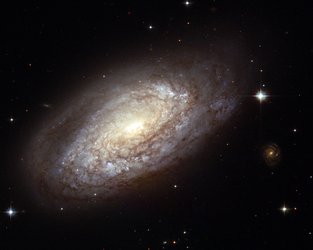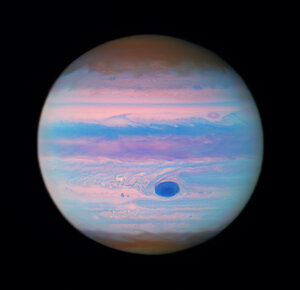

Hubble studies a spectacular spiral
The galaxy NGC 1961 unfurls its gorgeous spiral arms in this newly released image from the NASA/ESA Hubble Space Telescope. Glittering, blue regions of bright young stars dot the dusty spiral arms winding around the galaxy’s glowing centre.
NGC 1961 is an intermediate spiral and an AGN, or active galactic nuclei, type of galaxy. Intermediate spirals are in between “barred” and “unbarred” spiral galaxies, meaning they don’t have a well-defined bar of stars at their centres. AGN galaxies have very bright centres that often far outshine the rest of the galaxy at certain wavelengths of light. These galaxies likely have supermassive black holes at their cores churning out bright jets and winds that shape their evolution. NGC 1961 is a fairly common type of AGN that emits low-energy-charged particles.
The data used to create this image came from two proposals. One studied previously unobserved Arp galaxies, while the other looked at the progenitors and explosions of a variety of supernovae.
Located about 180 million light-years away, NGC 1961 resides in the constellation Camelopardalis.





